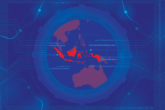February 13, 2018
China’s AI Agenda Advances
Are China’s ambitions to “lead the world” in artificial intelligence (AI) by 2030 credible? China’s rapid emergence as an AI powerhouse is often hyped and sensationalized, variously provoking alarm and enthusiasm that can sometimes overshadow the reality of real progress. At the same time, critical challenges remain in China’s quest to become “the world’s premier AI innovation center” and build up an AI industry of 1 trillion RMB (about $150 billion) in the process.
In China’s “rise” in AI, the active efforts of private enterprises have predated more recent policy support. However, since the State Council released the New Generation AI Development Plan in July 2017, there have been a number of indicators that its implementation is advancing throughout all levels of government. Although the future trajectory of its AI revolution remains to be seen, China is rapidly building momentum to harness the power of state support and the dynamism of private enterprises in a new model of innovation.
AI has only recently become a clear priority for Chinese leaders under the aegis of an agenda to transform China into a “nation of innovation.” For the 13th Five-Year Plan timeframe (2016-2020), China’s ambitions to transform itself into a superpower in science and technology are clear. In August 2016, the 13th Five-Year National Science and Technology Innovation Plan called for China to seize the “high ground” in international scientific development, launching a series of 15 “Science and Technology Innovation 2030 Megaprojects” that included both big data and intelligent manufacturing and robotics. At that point, AI was not explicitly included as a priority at that level, despite being mentioned in that and included in prior plans, such as the “Internet Plus” Artificial Intelligence Three-Year Action Implementation Plan, released in May 2016. Not until May 2017 did the Ministry of Science and Technology announce the decision to add “AI 2.0” to that initial lineup as a 16th megaproject.
Read the full op-ed in The Diplomat.
More from CNAS
-
Siliconsciousness: The AI Competition: Public Policy Strategies: Part 1
This episode comprises the first part of our special event, “The AI Competition: Public Policy Strategies”. The event, co-hosted by MIT Technology Review, brings together some...
By Dr. ED McGrady
-
How Drones in Ukraine Are Reshaping War
Samuel Bendett, a senior adjunct fellow at the Center for a New American Security, joins The Cipher Brief to discuss the current situation of drones being used in Ukraine.Watc...
By Samuel Bendett
-
Countering the Digital Silk Road: Indonesia
This year marks the 10th anniversary of the Digital Silk Road (DSR), China’s ambitious initiative to shape critical digital infrastructure around the world to advance its geop...
By Vivek Chilukuri & Ruby Scanlon
-
How Secure Is America’s AI Advantage?
https://www.youtube.com/watch?v=7njJkH7XRa8...
By Paul Scharre



